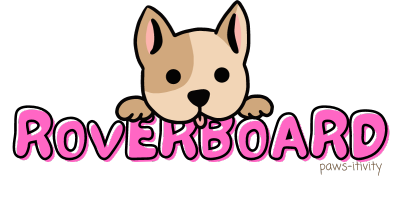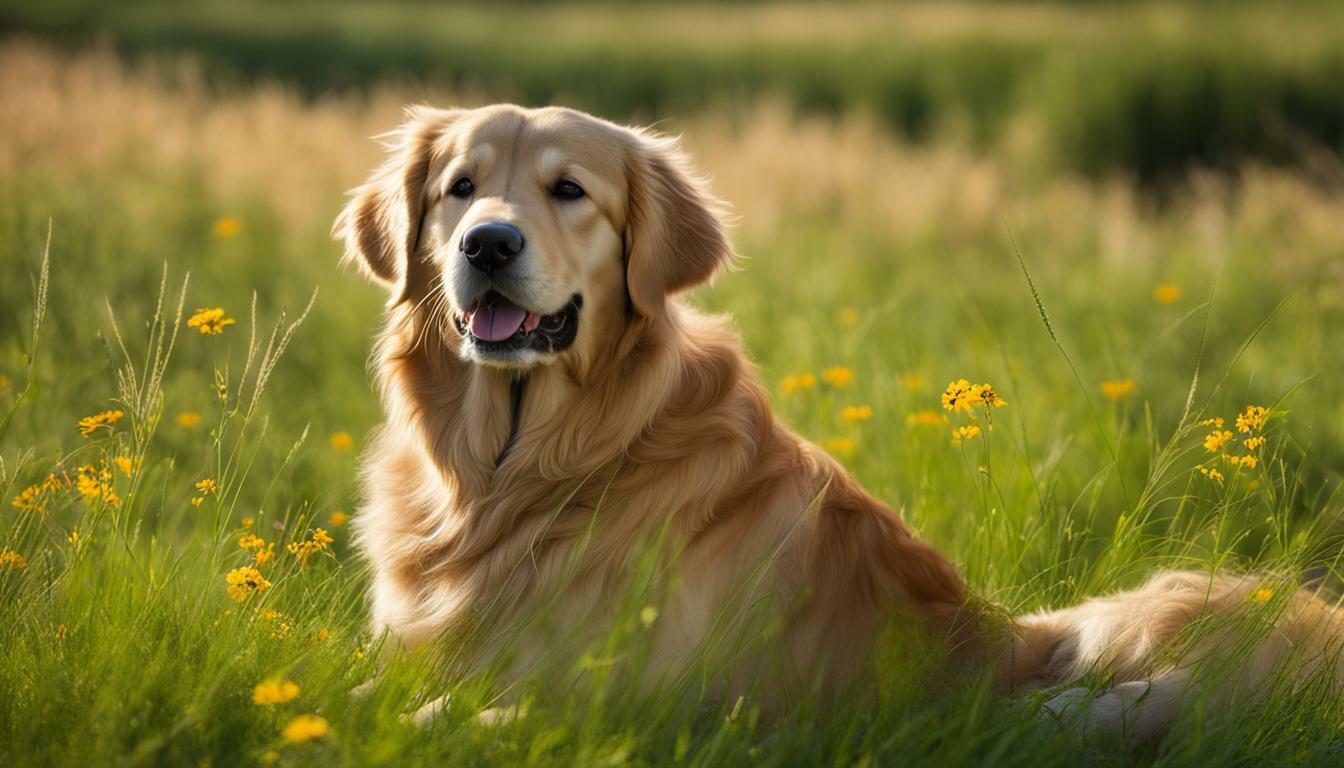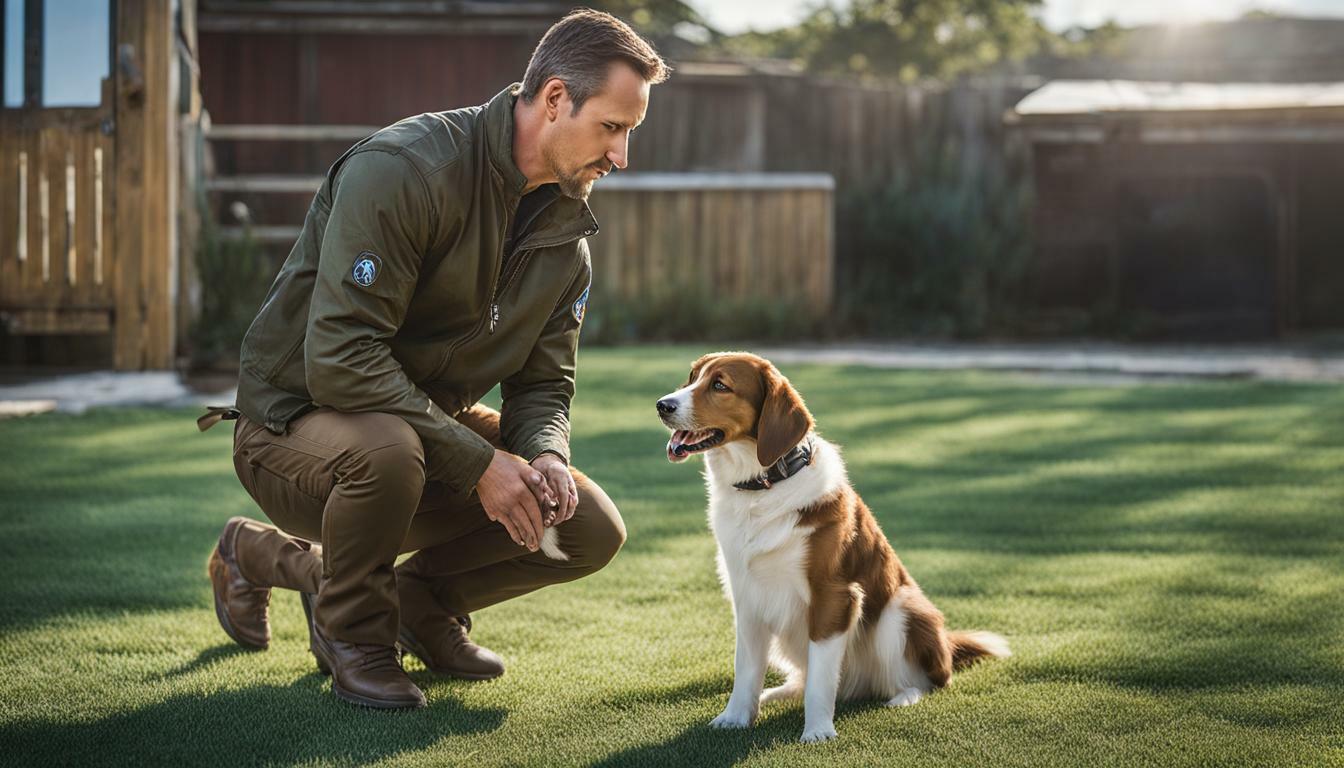Welcome to your comprehensive guide to owning a beautiful Golden Retriever. These friendly and intelligent dogs have become extremely popular and it’s not hard to see why. In this article, we’ll cover everything you need to know about caring for your Golden Retriever, including nutrition, grooming, training, behavior, socialization, and health care. We’ll provide you with all the information you need to become a responsible and confident Golden Retriever owner.
- Golden Retrievers are a popular breed known for their friendly and intelligent demeanor.
- This guide will cover all aspects of caring for your Golden Retriever, from nutrition and grooming to behavior and health care.
- By following the advice in this guide, you’ll become a confident and responsible Golden Retriever owner.
- Proper nutrition and exercise are essential for keeping your Golden Retriever healthy and happy.
- Early socialization and training play a crucial role in shaping your Golden Retriever’s behavior and ensuring they get along well with other dogs and people.
Understanding Golden Retrievers: A Breed Overview
Owning a Golden Retriever can be one of the most rewarding experiences for dog lovers. These beautiful, friendly, and intelligent dogs are known for their loyal and affectionate personalities, making them a popular choice for families and individuals alike.
Golden Retrievers originated in Scotland in the mid-19th century and were bred as hunting and retrieving dogs. They were originally known as “yellow retrievers” and were later crossbred with local water spaniels to create the breed we know today.
One of the defining characteristics of the Golden Retriever is their friendly and outgoing temperament. They are excellent with children and other pets, making them the perfect family dog. However, it’s important to note that they are also known for their love of food and can quickly become obese if not given proper nutrition and exercise.
In terms of physical characteristics, Golden Retrievers are medium to large sized dogs, with males typically weighing between 65-75 pounds and females weighing 55-65 pounds. They have a thick, double coat that can range in color from cream to dark golden. Their coat is water-repellent and requires regular grooming to prevent matting.
Golden Retrievers are highly intelligent and trainable, which is why they are often used as service and therapy dogs. They enjoy learning new skills and are quick to please their owners. However, because of their friendly and social nature, they may not make the best guard dogs.
Overall, the Golden Retriever is a wonderful breed for individuals and families who are looking for a loyal, friendly, and active companion. With proper care, nutrition, and training, owning a Golden Retriever can be a truly rewarding experience.

Your Golden Retriever’s health depends greatly on their diet and exercise routine. A well-balanced diet and regular exercise are crucial for maintaining a healthy weight, preventing obesity-related health issues, and promoting overall well-being.
When it comes to Golden Retriever nutrition, it’s essential to provide high-quality food that meets their nutritional needs. Look for dog food that contains real meat as the first ingredient and does not contain fillers or artificial preservatives. Consult with your veterinarian to determine the appropriate portion size and feeding frequency for your pet’s specific needs.
It’s also important to provide fresh water throughout the day and avoid feeding table scraps or human food, which can upset their digestive system and lead to weight gain. Obesity can lead to various health issues, including joint problems, diabetes, and cardiovascular disease.
Regular exercise is also vital for your Golden Retriever’s health. These dogs are energetic and require plenty of physical activity to stay happy and healthy. Engage in daily walks, interactive playtime, and challenging activities that stimulate their minds, such as puzzle toys or learning new skills.
As with any exercise routine, it’s essential to start gradually and build up to more strenuous activities over time. Be mindful of your dog’s age and physical condition when planning activities, and consult with your veterinarian if you have any concerns.
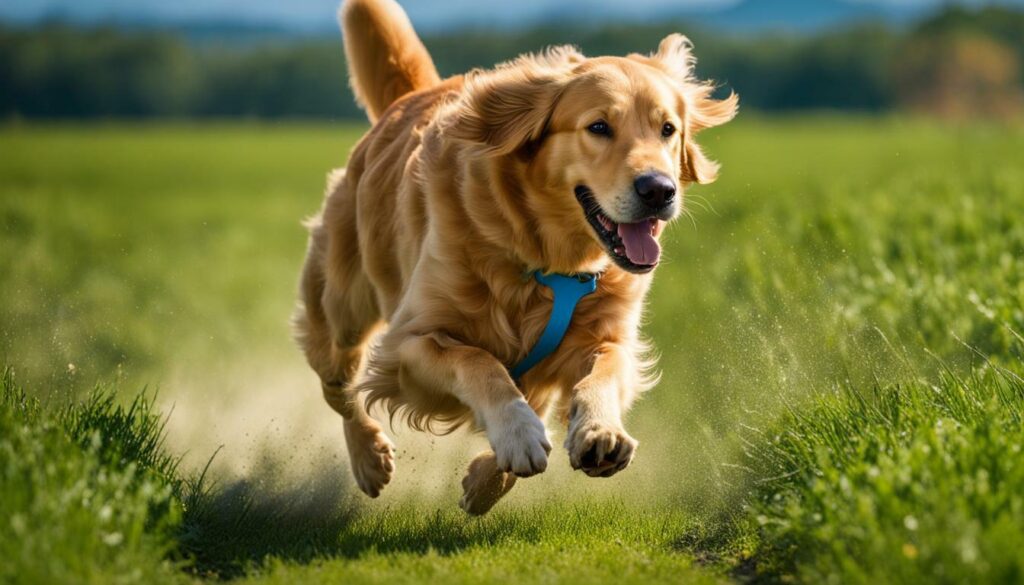
By providing your Golden Retriever with a healthy diet and regular exercise, you’ll help ensure a happy and fulfilling life for them. Always monitor their health and consult with a veterinarian if you have any concerns about their well-being.
Grooming Your Golden Retriever: Tips for a Beautiful Coat
Golden Retrievers have a luxurious coat that requires regular grooming to keep it looking its best. Not only does grooming help maintain their appearance, but it also ensures their skin and coat stay healthy and free from matting and tangles. Follow these tips to keep your Golden Retriever’s coat shiny and beautiful.
Brushing Your Golden Retriever’s Coat
Brushing is essential to prevent matting and remove loose fur and dirt from your Golden Retriever’s coat. Use a slicker brush or pin brush to gently work through their fur, starting at the neck and moving towards the tail. Be sure to brush in the direction of hair growth and avoid tugging or pulling on any knots or tangles.
Bathing Your Golden Retriever
Bathing your Golden Retriever every six to eight weeks helps keep their coat clean and healthy. Use a dog-specific shampoo and conditioner and ensure the water temperature is lukewarm. Rinse thoroughly and dry your Golden Retriever’s coat with a towel or blow dryer on low heat.
Maintaining Your Golden Retriever’s Ears, Eyes, and Teeth
Regularly cleaning your Golden Retriever’s ears, eyes, and teeth is essential for their overall health and well-being. Use a damp cloth or cotton ball to gently clean their ears, being careful not to insert anything into the ear canal. Use a dog-specific toothbrush and toothpaste to brush their teeth daily, and inspect their eyes for any discharge or irritation.
Trimming Your Golden Retriever’s Nails
Regular nail trimming prevents overgrowth and discomfort for your Golden Retriever. Use quality nail clippers and avoid cutting the quick, the pinkish area within the nail that contains blood vessels and nerves. If you’re unsure how to trim your Golden Retriever’s nails, ask your veterinarian or groomer for guidance.
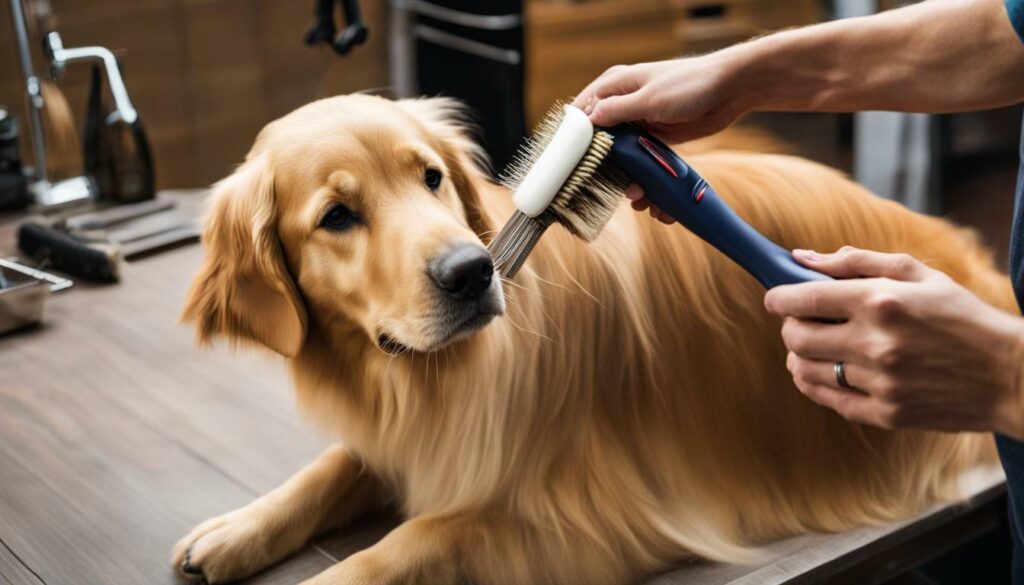
With proper grooming, your Golden Retriever’s coat will be healthy, shiny, and beautiful. Regular attention to their grooming needs helps prevent health issues and ensures they look and feel their best.
Training Your Golden Retriever: From Basic Commands to Advanced Skills
Training your Golden Retriever is essential for a healthy and happy relationship between you and your furry friend. These dogs are intelligent, eager to please, and thrive on positive reinforcement. Training your Golden Retriever not only strengthens your bond but also helps to prevent behavior problems.
Start by teaching your Golden Retriever basic obedience commands such as “sit,” “come,” and “stay.” Use positive reinforcement techniques like rewards, treats, and praise to encourage good behavior. Be consistent and patient, and always end training sessions on a positive note.
Once your Golden Retriever has mastered the basics, you can move on to more advanced skills such as agility training, retrieving games, and even search and rescue training. These exercises not only challenge your Golden Retriever but also provide mental and physical stimulation.
It’s important to note that training your Golden Retriever should be a fun and positive experience for both you and your dog. Avoid punishment-based training methods, as they can cause fear and aggression in your Golden Retriever.
Incorporating playtime and socialization into your Golden Retriever’s training routine can also be beneficial. Allow your Golden Retriever to interact with other dogs and people in a controlled and safe environment. This helps to build their confidence and social skills.
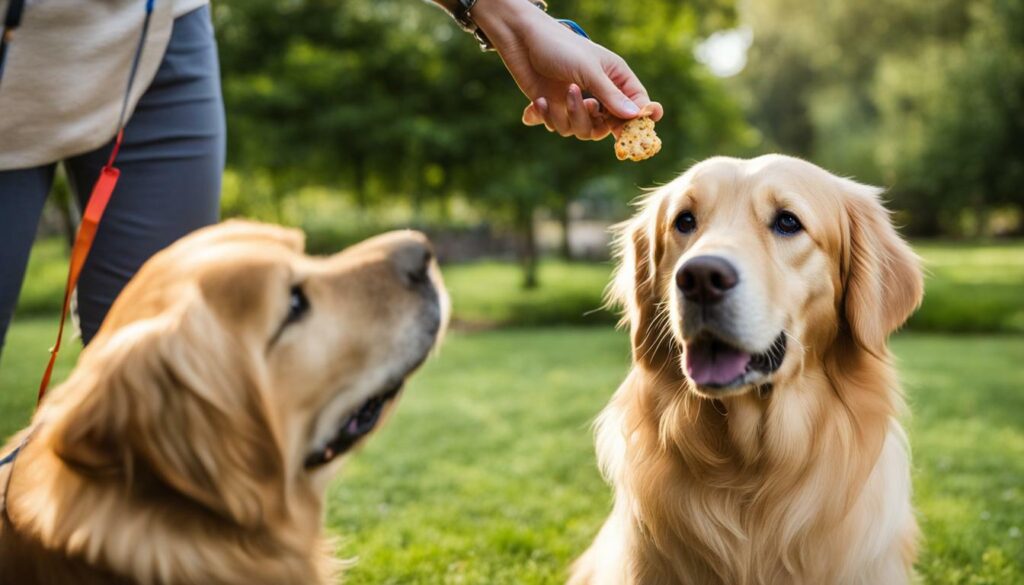
Remember that training your Golden Retriever requires time and effort, but the rewards are well worth it. With patience and consistency, your Golden Retriever can become a well-trained and obedient companion.
Understanding Golden Retriever Behavior: Common Traits and Challenges
Golden Retrievers are beloved family pets known for their intelligence, loyalty, and affectionate nature. However, like all dogs, they have their unique set of behaviors and challenges that owners should be aware of. Here are some common Golden Retriever behaviors and tips on how to address and manage them:
Love for Water
Golden Retrievers have a natural affinity for water and swimming. While their love for water can be fun, it can also pose a challenge when it comes to keeping them clean and dry. To prevent your Golden Retriever from tracking water and mud into your home, consider keeping towels and a portable bath or shower handy, or training them to shake off excess water before coming inside.
Tendency to Chew
Golden Retrievers are notorious chewers, especially during their teething phase. To protect your belongings from being destroyed, provide your Golden Retriever with plenty of chew toys, ropes, and bones to satisfy their chewing needs. If they start chewing on something they shouldn’t, redirect their attention to an appropriate toy and praise them when they chew on it.
Separation Anxiety
Golden Retrievers thrive on human interaction and can develop separation anxiety if left alone for extended periods. To prevent this, gradually increase the amount of time your Golden Retriever spends alone, starting with short periods and gradually building up to longer ones. Provide them with toys and treats to keep them occupied, and consider hiring a dog walker or pet sitter if you need to be away for an extended period.
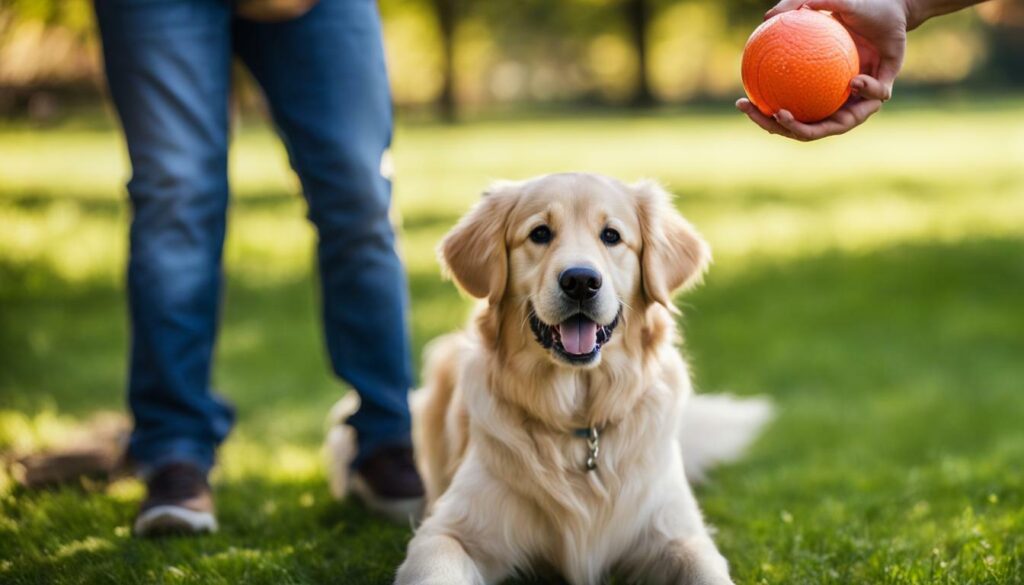
While Golden Retrievers are generally friendly and sociable, they can become aggressive if they feel threatened or scared. To prevent aggression, socialize your Golden Retriever from a young age to familiarize them with different people, animals, and environments. Train them to obey basic commands and use positive reinforcement techniques to discourage aggressive behavior.
Barking
Golden Retrievers are vocal dogs and may bark to communicate with their owners or alert them to potential dangers. However, excessive barking can be a nuisance to neighbors and can indicate underlying anxiety or boredom. To control barking, provide your Golden Retriever with plenty of exercise and mental stimulation, and train them to respond to commands like “quiet” or “enough”.
By understanding the common behaviors and challenges of Golden Retrievers, you can develop effective strategies for addressing and managing them. With proper training, socialization, and care, your Golden Retriever can be a happy and well-behaved companion for years to come.
Socializing Your Golden Retriever: Building Positive Relationships
Socializing your Golden Retriever is essential to ensure they develop into well-behaved and friendly companions. Early socialization enables your Golden Retriever to learn how to interact with other dogs, animals, and people, reducing the chances of aggression or fearfulness. The socialization process should begin when your Golden Retriever is a puppy, as they are more adaptable and less likely to develop negative associations with new experiences.
Start by introducing your Golden Retriever to a wide range of people, including children, men, and women. Encourage gentle petting and praise your Golden Retriever for calm behavior. Gradually increase the level of noise and activity around your Golden Retriever, allowing them to experience new sounds, sights, and smells.
Introduce your Golden Retriever to other dogs at a young age, preferably in a controlled environment, such as a puppy class or a neutral location. Supervise all interactions closely, intervening if necessary to prevent any aggressive behavior. Gradually increase the number of dogs your Golden Retriever interacts with, ensuring they have positive experiences.
Exposing your Golden Retriever to a variety of environments, such as parks, beaches, and hiking trails, will help them become comfortable and confident in new situations. Use positive reinforcement to reward calm and confident behavior, gradually increasing the level of difficulty as your Golden Retriever becomes more comfortable.
Remember that every Golden Retriever is unique, and some may require more time and patience to socialize effectively. Be patient, consistent, and positive, and your Golden Retriever will develop into a happy and well-adjusted companion.
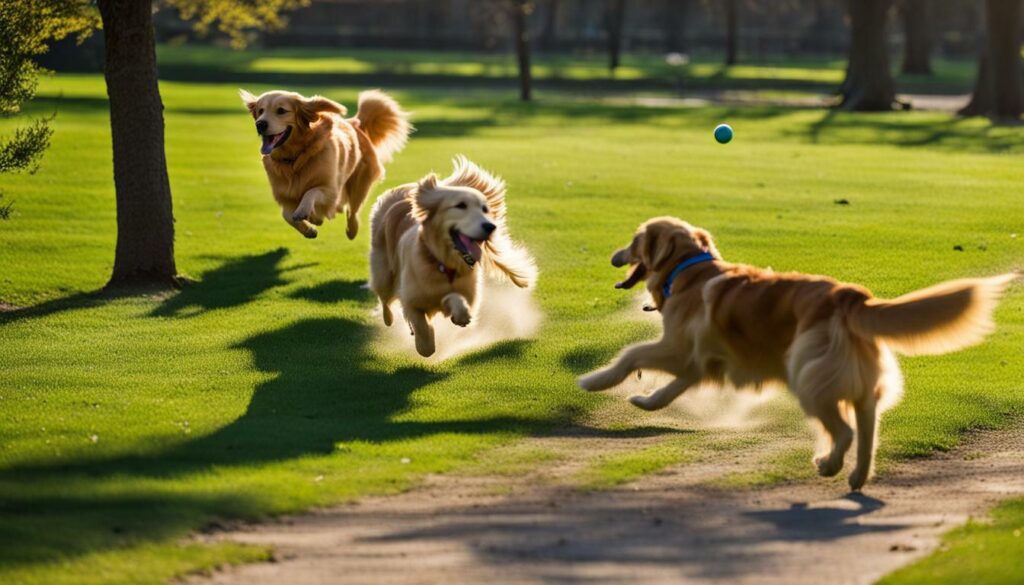
Preventive Healthcare for Golden Retrievers: Vet Visits and Common Health Issues
As a responsible Golden Retriever owner, it’s crucial to prioritize your furry friend’s health with regular veterinary care. Golden Retrievers are susceptible to certain health conditions, such as hip dysplasia and cancer, which can be better managed with preventive care. Here’s what you need to know about keeping your Golden Retriever healthy:
Vet Visits and Vaccinations
Schedule your Golden Retriever for regular check-ups with a trusted veterinarian, who will monitor their overall health and well-being. During your visits, discuss preventive measures, such as vaccinations, to protect your Golden Retriever from common diseases and illnesses, including rabies, distemper, and parvovirus. Keep track of your Golden Retriever’s vaccination schedule and make sure they receive booster shots as needed.
Common Health Issues
Golden Retrievers may be predisposed to certain health problems that may require additional care and attention. For instance, hip dysplasia is a common condition that affects their joints, causing pain and mobility issues. Other potential health issues include allergies, ear infections, and cancer. Be vigilant of any changes in your Golden Retriever’s behavior or appetite, and consult with your veterinarian if you notice anything unusual. Early detection and treatment can help manage health conditions more effectively.
Diet and Exercise
A balanced diet and regular exercise routine are crucial components of preventive healthcare for your Golden Retriever. Feeding your furry friend high-quality dog food that meets their nutritional needs can help prevent obesity and related health problems such as diabetes and heart disease. Likewise, regular exercise can help keep your Golden Retriever happy and healthy while promoting healthy weight management. Always consult with your veterinarian before making any significant changes to your Golden Retriever’s diet or exercise plan.
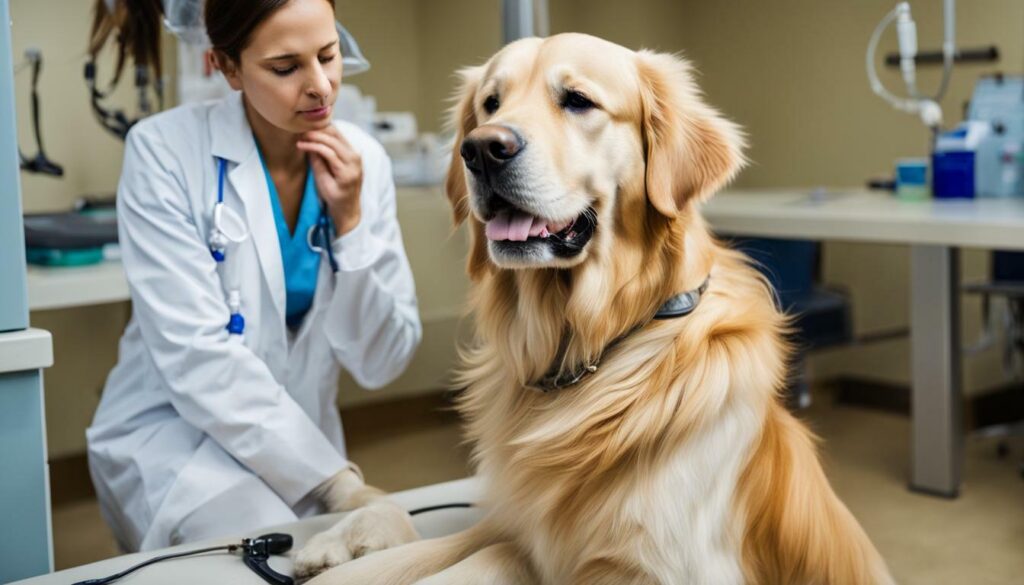
By following preventive healthcare measures, you can help ensure that your Golden Retriever enjoys a long and healthy life by your side. Remember, regular vet visits, vaccination schedules, and proper nutrition and exercise are essential parts of responsible Golden Retriever ownership.
Golden Retriever Ownership Tips: A Lifetime of Love and Happiness
As a Golden Retriever owner, you have the opportunity to create a lifetime of love and happiness with your furry friend. Here are some additional tips and advice to help enhance your experience:
Find the Right Toys and Treats
Golden Retrievers love to play and chew, so it’s essential to provide them with safe and appropriate toys to prevent destructive behavior. Look for toys made from durable materials, such as rubber or nylon, and avoid toys with small parts that could be swallowed. Additionally, choose treats that are healthy and nutritious, such as fruits and vegetables, and limit the amount of processed treats your dog consumes.
Create a Safe and Stimulating Environment
Your Golden Retriever’s living environment should be safe, secure, and stimulating. Make sure to puppy-proof your home by securing loose cords, chemicals, and sharp objects. Provide your dog with a comfortable bed, and consider adding blankets and pillows to make their space cozy. Additionally, provide plenty of toys and activities, such as puzzle toys and interactive games, to keep your dog mentally and physically stimulated.
Monitor Your Golden Retriever’s Health
Regular veterinary care is essential for your Golden Retriever’s health and well-being. Make sure to schedule routine check-ups, vaccinations, and screenings for common health issues, such as hip dysplasia and eye problems. Additionally, monitor your dog’s behavior and look for signs of illness or discomfort, such as lethargy, loss of appetite, or changes in urination and bowel movements.
Conclusion
By following these tips and providing your Golden Retriever with love, care, and attention, you can ensure a lifetime of happiness and joy with your furry friend. Remember to be patient, consistent, and attentive to your dog’s needs, and you’ll create a strong bond that will last a lifetime.
FAQ
Q: What is the purpose of this Golden Retriever ownership guide?
A: The purpose of this guide is to provide comprehensive information on caring for and owning a Golden Retriever, covering topics such as grooming, nutrition, training, behavior, and more.
Q: Why is it important to understand Golden Retriever temperament and characteristics?
A: Understanding the temperament and characteristics of Golden Retrievers is crucial for creating a harmonious and fulfilling relationship with your furry companion.
Q: How can I ensure a healthy lifestyle for my Golden Retriever?
A: Maintaining a healthy lifestyle for your Golden Retriever involves providing proper nutrition and regular exercise tailored to their specific needs.
Q: What are some grooming tips for a Golden Retriever’s coat?
A: Regular brushing, bathing, and proper maintenance of their coat are important for keeping your Golden Retriever’s beautiful coat healthy and mat-free.
Q: How can I effectively train my Golden Retriever?
A: Golden Retrievers are highly trainable. Utilizing positive reinforcement techniques and consistent training can help you teach them basic commands and advanced skills.
Q: What are some common behaviors and challenges of Golden Retrievers?
A: Golden Retrievers have specific behaviors such as a love for water, chewing tendencies, and separation anxiety. Understanding and addressing these behaviors is important for their well-being.
Q: How can I socialize my Golden Retriever?
A: Early socialization is crucial for Golden Retrievers. Introducing them to new experiences and environments can help build positive relationships with other dogs and people.
Q: How often should I take my Golden Retriever to the vet?
A: Regular veterinary care, including routine check-ups and vaccinations, is essential for maintaining your Golden Retriever’s overall health and preventing common health issues.
Q: What additional tips can enhance my experience as a Golden Retriever owner?
A: This guide offers additional tips and advice on finding the right toys and treats, creating a safe environment, and fostering a lifetime of love and happiness with your Golden Retriever.

Marissa Delotta, 36, from Dayton, Ohio, is the creative force behind Roverboard.com, a beloved online destination for dog lovers. As a dedicated mom and canine enthusiast, Marissa combines her family experiences with her love for dogs to offer a platform where dog owners can exchange tips, heartwarming stories, and advice. Her website has become a vibrant community for sharing the joys of dog parenting. In her free time, Marissa enjoys exploring dog parks with her family and volunteering at local animal shelters.
